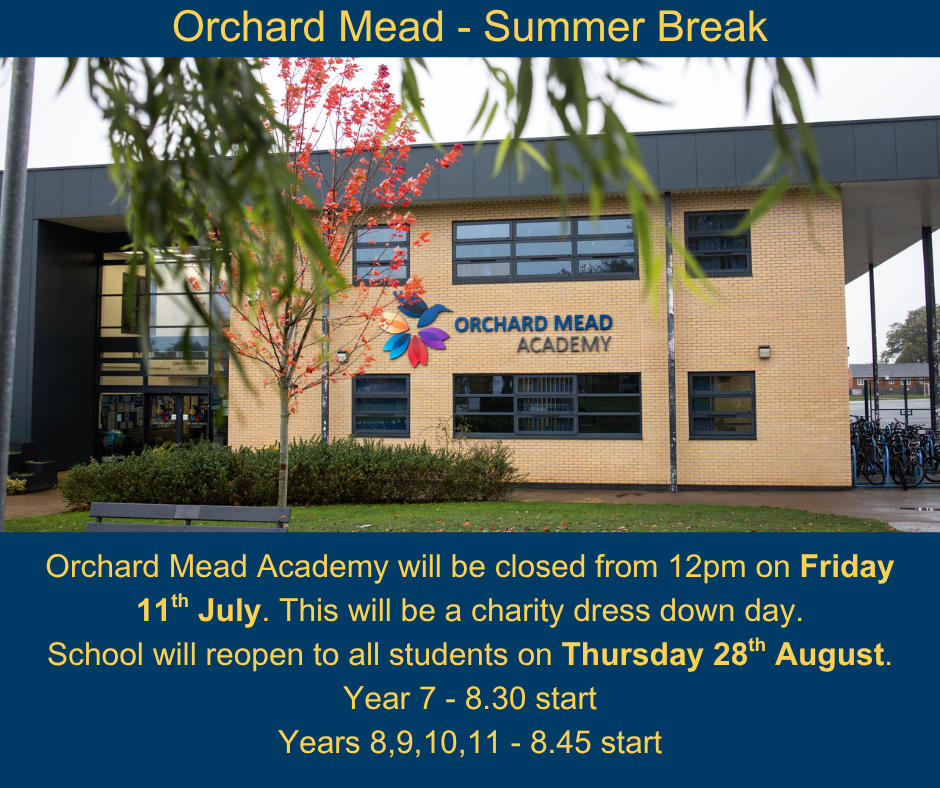“Without language, one cannot talk to people and understand them; one cannot share their hopes and aspirations, grasp their history, appreciate their poetry, or savour their songs.” – Nelson Mandela
Introduction
At Orchard Mead Academy, education is enriched by the diverse ethnicity, culture, and language of our students. We are dedicated to providing high-quality teaching for all, including those who are bilingual or who have English as an additional language.
We understand the importance of identifying each student’s individual needs and recognizing the unique skills they bring to the school. Our commitment to equality of access to the curriculum ensures that every student, regardless of their background, has the same opportunities to succeed.
We provide direct language support from specialist teachers, but we also take a whole-school approach to equality of access to the curriculum. This includes creating a learning environment that incorporates a wide range of teaching and learning strategies, multicultural and multilingual resources and displays, and celebrating a variety of world cultural events throughout the school year.
All staff are responsible for ensuring that all pupils, including EAL pupils achieve their full potential.
The Leader of the EAL at Orchard Mead Academy is Ms I. Kaminska-Placzek
(email: [email protected])
What is EAL?
The government’s definition of an EAL learner is: ‘A child with English as an additional language is one who was exposed to a language other than English during their early years and continues to be exposed to this language in the home or in the community.’
English Proficiency Levels
At Orchard Mead Academy we have been using The Bell Foundation framework to gain a meaningful understanding of our EAL learners’ development. It helps us to observe the ways bilingual pupils start to use English as a tool for learning in school, then continue to develop their use of English through all their subject areas. The stages describe the development of communicative behaviour in class and language for learning through listening, speaking, reading and writing. It also includes some aspects of personal development likely to be significant for bilingual learners, such as readiness to speak to others in the classroom.
There are five stages of English language proficiency:
A – New to English
Those students may use their first language for learning and other purposes. They may remain completely silent in the classroom. May be copying/repeating some words or phrases. May understand some everyday expressions in English but may have minimal or no literacy in English. Needs a considerable amount of EAL support.
B – Early Acquisition
May follow day-to-day social communication in English and participate in learning activities with support. Beginning to use spoken English for social purposes. May understand simple instructions and can follow narrative/accounts with visual support. May have developed some skills in reading and writing. May have become familiar with some subject specific vocabulary. Still needs a significant amount of EAL support to access the curriculum.
C – Developing Competence
May participate in learning activities with increasing independence. Able to express self orally in English, but structural inaccuracies are still apparent. Literacy will require ongoing support, particularly for understanding text and writing. May be able to follow abstract concepts and more complex written English. Requires ongoing EAL support to access the curriculum fully
D – Competent
Oral English will be developing well, enabling successful engagement in activities across the curriculum. Can read and understand a wide variety of texts. Written English may lack complexity and contain occasional evidence of errors in structure. Needs some support to access subtle nuances of meaning, to refine English usage, and to develop abstract vocabulary. Needs some/occasional EAL support to access complex curriculum material and tasks.
E – Fluent
Can operate across the curriculum to the level of competence equivalent to that of a pupil who uses English as his/her first language. Operates without support across the curriculum.

 Together We Can Make a Positive Difference
Together We Can Make a Positive Difference